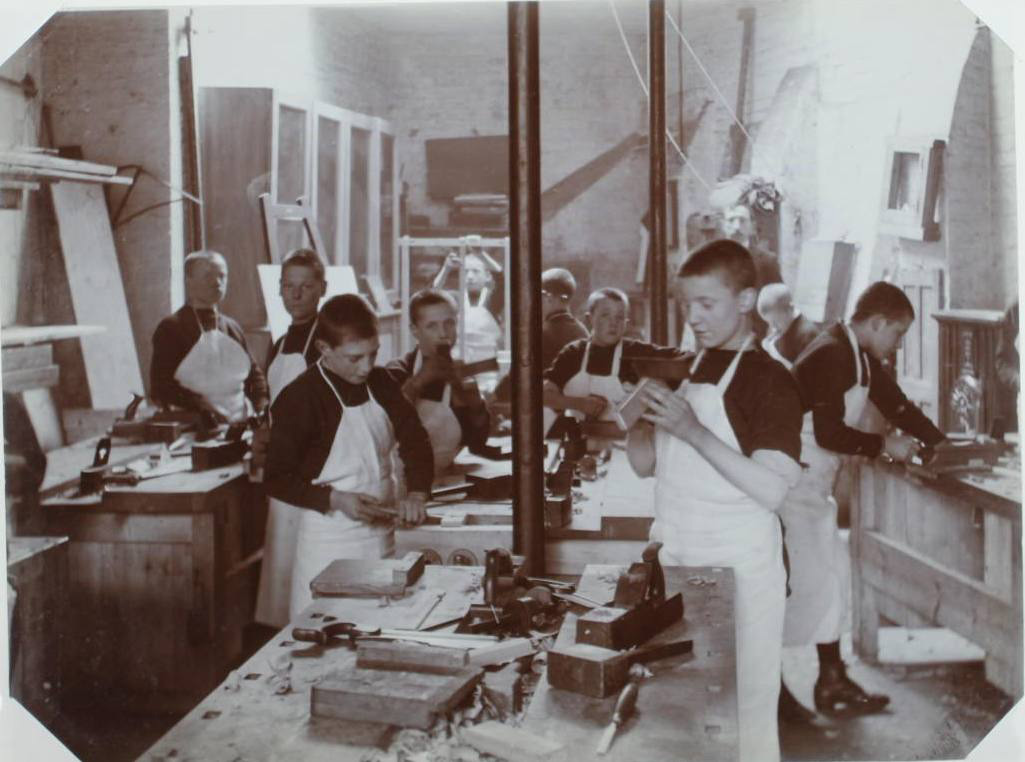School-made munitions
By the summer of 1915 munitions factories were in urgent need of skilled and semi-skilled workers. In June 1915 the Ministry of Munitions approached the Board of Education: might the metalwork shops and engineering equipment of schools and technical colleges be pressed into service to manufacture munitions?

School workshop, c. 1910 (catalogue reference: MH 102/2691)
When the Board of Education made enquiries it found that some schools and colleges were already hard at work. 200 pupils at Oundle School in Northamptonshire worked in batches of 30 a day manufacturing munition parts. The boys were so keen that 60 stayed on during the summer holidays of 1915. At Sutton Coldfield, boys and staff worked voluntarily out of school hours manufacturing parts for shrapnel shells. The headmaster proudly reported that after just two weeks their workshop was turning out more than 500 parts a week.
Letters from schools and colleges reveal that many institutions like Oundle and Sutton Coldfield were keen to contribute as best they could, though some were a little sceptical. As the headmaster of Bablake School in Coventry wrote, the work was very skilled and ‘the boys who do this kind of work would not be good enough’.
Some munitions manufacturers were also reluctant to engage part-time volunteers, however enthusiastic. In Leeds, a Volunteer Munitions Corps was formed of about 200 male teachers and their friends; they were prepared to give their holidays and weekends to munitions work. The volunteers arranged for the use of school workshops and suitable equipment, but struggled to persuade local munitions factories to engage them.
By July 1915 the Board of Education had decided that where schools were not already making a substantial contribution to the manufacture of munitions it might be better if their equipment, rather than their students, be pressed into action. Schools and colleges were asked to offer their workshops and staff to train full-time workers for local factories, or to transfer much-needed tools, like lathes and milling machines, to munition centres.
Throughout the war hundreds of workers were trained in specialist munitions work in school and college workshops, while those pupils taking ‘manual training work’ classes produced shell and fuse parts to aid the war effort.

